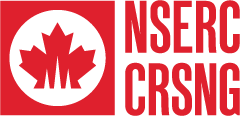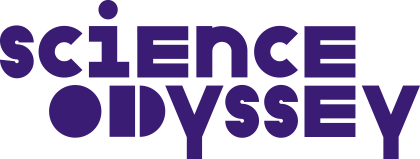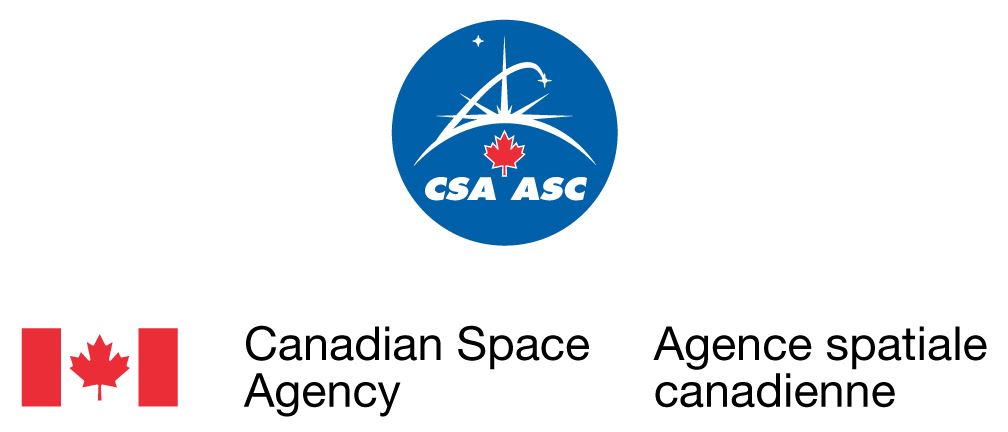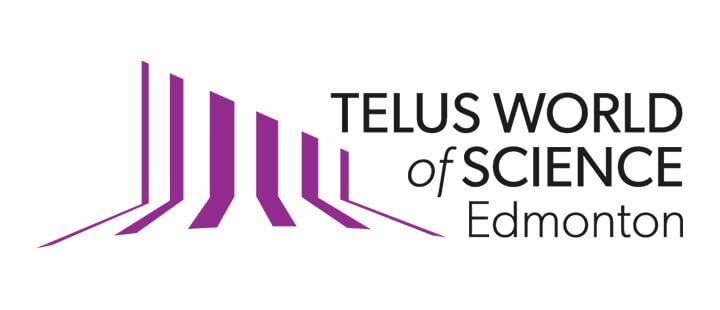

CONCURRENT SESSIONS Wednesday, May 25, 2022 1:10 PM ET Thursday, May 26, 2022 1:10 PM ET WORKSHOPS In addition to the two ACTION filled days of learning and sharing we’ve organized three workshops that are sure to have an IMPACT on your professional development needs. Learn more here.
Wednesday, May 25, 2022 #1 Canada is going to the Moon
#2 Standing in the Shadow: How to Get Ready for the April 2024 Total Solar Eclipse Solar eclipses offer unparalleled opportunities to connect people with the cosmos. In April 2024, Canada will experience a total solar eclipse, the first one over a densely populated area since 1979. All of Canada will experience a partial eclipse, with the totality of the eclipse visible in Ontario, Quebec, and the Atlantic provinces. This event has not been featured in the news yet, but it will be a major event that all Canadians excitedly anticipate as we get closer to 2024. To ensure a fun and safe experience for as many people as possible, we need to start planning now! This presentation will give you an overview of the eclipse, local details, and information to observe it safely. We will discuss available resources and experts, how to reach underserved audiences and bring a diverse perspective on eclipses as well as considerations to plan your eclipse activities. Finally, we will provide tips to engage your local, regional, or even national audiences and partners.
PRESENTERS Charles Woodford (He/Him) Knowledge Translation Specialist for the McDonald Institute, Queen's University / Discover the Universe Dr. Woodford is the Knowledge Translation Specialist for the McDonald Institute at Queen’s University and an Educational Content Developer with Discover the Universe. He is leading the Kingston, Frontenac, Lennox & Addington 2024 Eclipse committee based at Queen's University and led the Discover the Universe 2021 Eclipse project. Julie Bolduc-Duval (She/Her) Director, Discover the Universe Julie has been helping informal educators and teachers across Canada for over a decade through the astronomy education program Discover the Universe. She’s actively involved in the eclipse 2024 preparation in Canada and is co-chair of the national education committee for this event.
Join 2 members of Science North's Indigenous Advisory Committees and the Senior Manager of Indigenous Initiatives in an informative talk on how advisory committees can inform and shape science centres on their journey of reconciliation. Through cultural competency training, work with local knowledge keepers and the inclusion of a multiplicity of Indigenous voices, science centres and museums have the opportunity to ensure Indigenous People are included, uplifted and their voices amplified. Listen to stories of learning, relationships and reciprocity.
PRESENTERS Cindy Crowe Lodgekeeper, Blue Sky Community Healing Centre Cindy is a member of Lake Helen First Nation and has been working for the past 30 years helping organizations understand the importance of Indigenous voices. Emily Kerton (She/Her) Senior Scientist, Outreach & Indigenous Initiatives, Science North Emily has been working in the science centre field for the past 12 years and initiated Science North's most current work with Indigenous audiences. Julia Pegahmagabow Language Teacher, Akinoomoshin Inc. Julia works with Indigenous language speakers to revitalize Anishinaabemowin and provides language translation services.
Developing innovative recruitment, hiring and retention practices are key to a diverse, inclusive and equitable organizational culture. This session will highlight strategies to build a more inclusive hiring process from job postings, searching for the right candidates, making hiring decisions to retention and promotion. In this workshop your team will learn:
To prepare for the Antiracism at Work Workshop, take some time to reflect on the following questions:
Join Selam Debs for this workshop of exploring, self-examining and developing an Antiracist Lens
Inquiry based learning has become widely accepted by teachers across Canada. From East to West, science centres have designed and implemented a variety of inquiry learning experiences which have influenced the curriculum content in different provinces. In 2022, how do we formalize assessment methods? How do we ensure equity in science through Inquiry? What role do science centres play in bringing inquiry to students? Representatives from three science centres across Canada reflect on and share their strategies in implementing inquiry-based learning into classroom education.
PRESENTERS Michael Edwards (He/Him) Chief Science Officer, Science East Michael moved to Canada from Scotland in 1992 to attend the University of New Brunswick. During his more than 25 years at Science East, initially as a volunteer, he's worked with the public, teachers and students in Canada, the United States, Scotland and Kuwait. Nicole Vieira (She/Her) Experiential Learning Specialist (Tinkering), Science World Nicole Vieira has been exploring her passion for education for as long as she can remember; Her BSc and BEd in Mathematics has led her from teaching through many positions at Science World including after school clubs, summer camps, Tech- Up programs all over BC and now the Tinkering program specialist. Rocio Navarro (She/Her) Science Educator/Educatrice en sciences, Ontario Science Centre Rocio Navarro is a biologist and teacher who works as a bilingual educator at the Ontario Science Centre. Rocio has been developing, implementing and delivering inquiry-based school programs for the past 15 years, both in Ontario, Canada and internationally. Thursday, May 26, 2022 In this session, attendees will learn how science centres, museums, and postsecondary faculty ca develop mutually beneficial partnerships that increase a museum or science centre’s evaluation capacity and consider the advantages and challenges of such partnership models. First, presenters will briefly share three different example models of recent collaborative efforts and plans that bring together geoscience Discipline-Based Education Researchers (DBERers) and student researchers at University of British Columbia, staff at Pacific Museum of Earth, and staff at Science World to provide additional museum/centre evaluation capacity and postsecondary students with research experiences in geoscience education. The three models and plans include: an independent undergraduate research project, a science communication course that includes a student-curated exhibit project, and an effort to develop a community-engaged research internship program. Attendees will then engage in a guided reflection activity in which they identify potential partners. Lastly, presenters will lead a whole group discussion of strategies and tips for locating potential partners and building successful partnerships.
|
PRESENTERS Laura Lukes (She/Her) Assistant Professor University of British Columbia Dr. Laura Lukes is an Assistant Professor at University of British Columbia in the Earth, Ocean and Atmospheric Sciences Department and studies how people learn geoscience across settings, including museums and science centers to support more equitable access to quality STEM learning experiences. Kirsten Hodge (She/Her) Director of the Pacific Museum of Earth, University of British Columbia Dr. Kirsten Hodge is volcanologist and science educator at the University of British Columbia. She is a thinker, planner, and conduit between science experts and young minds. Her goal is to share science stories so that people feel more connected to our planet and their place within it. Sandy Eix (She/Her) Director of STEAM Learning, Science World Dr. Sandy Eix has a PhD in Physics and has been inventing exhibits, programs and shows at Science World for 25 years. She is fascinated by how people learn in informal environments, and by the lovely work that happens at the intersections of formal and informal learning. |
This highly interactive session will explore the different methodologies of four science centers across the country in explaining and promoting the science of vaccinations in their communities. Ontario Science Centre is developing a permanent exhibit, graphic panels, and short, engaging animations for use onsite and online. Science North launched a program called “Give vaccines a shot”, using online and social media platforms to provide their audience with accurate and up to date scientific information about vaccines. Working directly with communities disproportionately impacted by the pandemic in Nova Scotia, Discovery Centre aims to co-create resources and outreach programming surrounding vaccine science and vaccine confidence. TELUS Spark Science Centre brings together the voices of Traditional Indigenous Elders and Knowledge Keepers, professional scientists, Hip Hop artists and youth leaders, to share stories and perspectives on vaccines in the context of health, respect, community, empathy and traditional medicine. After short introductions to each project, presenters will showcase strategies in action using participant input. This session is part one of two planned sessions to be presented at CASC. This session will focus on early work, community consultations, and developing resources based on community input. Next year’s session will focus on project results and evaluation. |
|  |
|
|
|
PRESENTERS Raluca Ellis (She/Her) Researcher-Programmer, Science, Ontario Science Centre Dr. Raluca Ellis is a Researcher at the Ontario Science Centre developing science content for exhibitions and public/family programs. Her expertise is in communicating complex topics such as vaccine science, psychology, and climate change to diverse audiences. She holds a Ph.D. in environmental chemistry from University of Toronto. Bruce Doran (He/Him) Staff Scientist and Project Manager of “Give Vaccines a Shot!”, Science North Bruce is a scientist at Science North, responsible for visitor experiences related to animal and human biology. He leads the social and digital media initiative,” Give Vaccines a Shot!", which explains and promotes the science of vaccines. Andrew Howe (He/Him) Health Science Educator, The Discovery Centre Andrew Howe is the Health Science Educator at The Discovery Centre in Halifax NS. He brings his experience as a community coordinator with the African Nova Scotian COVID Response Team to aid in the co-development of vaccine science resources and programming with partners in marginalized communities throughout Nova Scotia. Rebecca Dawn (She/Her) Co-production Manager, Hip Hop Science, Telus Spark Science Centre She/Her Rebecca Dawn is a recording and performance artist and freestyle rapper with MSc in Environmental Science, and BAs in Anthropology and Music. She performs and teaches worldwide, seeking to create a sensory habitat where audiences can explore foreign concepts as if they were travelers on a new and exciting landscape. Walter White Bear (He/Him) Singer-songwriter Walter MacDonald White Bear is a Cree singer-songwriter originally from the First Nation of Moose Factory, Ontario. Walter is an educator, performer and motivational speaker. He performs acoustic and flute music, and has been a keynote speaker on topics including Social Services, Justice, Education, Wellness and the Environment. |
 Students with disabilities experience barriers to inclusion in STEM, both inside and outside school. This session will review the initiatives of a partnership between the London Children’s Museum and Western University as well as the Montreal Science Centre in including people who experience barriers to participating in STEM and science centres. We will present a collaborative case example of integrating research and practice, including an overview of background studies, program development and pilot projects from the London Children’s Museum and Western University. We will explore challenges, solutions, and best practices in the inclusion of people with intellectual and developmental disabilities. At the Montreal Science Centre, a visit preparation and support guide for people with special needs, a training program for field teams on clients with special needs, and exclusive peaceful morning with reduced stimuli facilitated access for visitors with special needs to exhibitions and the IMAX TELUS cinema. |
|
|
|
|
|
Anton Puvirajah (He/Him) Assistant Professor, Western University, Faculty of Education
Anton Puvirajah is an Assistant Professor of STEM Education in the Faculty of Education at Western. His research examines underrepresented minoritized students’ STEM identity discourses.
Julia Ranieri (She/Her) Doctoral Candidate, Western University, Faculty of Education
Julia Ranieri is doctoral candidate at Western University. Her research focuses on inclusive education for children with intellectual and developmental disabilities at informal educational settings. Through her experiences of assessment and intervention, she has developed an interest in barriers to human rights for children living with intellectual and developmental disabilities.
Jamie Fenton (She/Her) Programs and Services Manager, London Children’s Museum
Jamie has more than 10 years of experience designing and developing programs, building relationships with community partners, and managing community engagement initiatives. At the CM, she oversees public programs, visitor services, outreach programs, and day camps. She is also responsible for hiring, training, and mentoring the part-time staff teams.
Nicole Neil (She/Her) Associate Dean, Graduate Education, Western University, Faculty of Education
Nicole Neil the Assistant Dean of Graduate Education and Associate Professor in the Faculty of Education at Western University and a Board Certified Behavior Analyst. Nicole has been working with people with Down syndrome, autism, and developmental disabilities for over 10 years in both a research and clinical capacity.
Sara Arsenault (She/Her) Project Manager, Montréal Science Centre
Sara Arsenault works as a project manager at the Montreal Science Centre. She has a bachelor's degree in anthropology and a master's degree in museology. Since childhood, she has had two dreams: to become an archaeologist or an astronaut. This shared passion remains today. Sara has been working in the museum field for over 15 years, happily moving from historic institutions to science museums... and vice versa. She moved to the Science Centre in 2016 and plans to stay for a long time. As a project manager, Sara works as much on exhibitions as on cultural events. Sara is very interested in space exploration, particularly the Apollo missions In 2018, she had the chance to go to NASA's Johnson Space Center (Houston, Texas) to collect a moon rock for the Science Centre.

While misinformation has been around for decades, the rapid spread of misinformation during the COVID-19 pandemic has been unmatched. During this panel, we aim to discuss the lessons learned during COVID that can be used to address misinformation with topics including climate change. We will also cover the following:
|
| MODERATOR
Dr. Krishana Sankar (She/Her) PhD Dr. Krishana Sankar completed her PhD at the University of Toronto in the Faculty of Medicine with expertise in Cellular & Molecular Biology. Dr. Sankar is currently the Science Advisor and Community Partnership Lead for CASC’s ScienceUpFirst initiative; she also leads a Science Communication project for COVID-19 resources Canada and volunteers as a Vaccine Safety Educator. She is also a science communicator and has been dispelling misconceptions around healthcare issues on social media and in communities for several years. Since the pandemic, she has been doing educational outreach about COVID-19 and the vaccines with communities in Canada and Guyana. |
|
|
|
PRESENTERS Anthony Morgan (He/Him) PhDc Anthony is science communicator, experience designer, PhD researcher and former segment host of Discovery Channel's Daily Planet. He's spent over 15 years working across multiple disciplines in science communication including live engagement at the Ontario Science Center, web series production for Asap SCIENCE and radio hosting CBC's Quirks & Quarks. For this work and his work with Science Everywhere, he was recognized as one of Canada’s top 10 millennial changemakers by the CBC. His PhD research focuses on critical thinking, wisdom, science and society. He is also the Founder of Science Everywhere a Science Engagement company making science accessible, fun and engaging. Dr. Mahadeo Sukhai (He/His) Dr. Mahadeo Sukhai (he/him/his) is the co-founder of IDEA-STEM inc., a newer organization with the goal of supporting the inclusion of people with disabilities and intersecting identities in science. He is Canada’s only congenitally blind biomedical research scientist, and the world’s first congenitally blind geneticist. Dr. Sukhai obtained his Ph.D. in cancer genetics from the University of Toronto and completed two postdoctoral fellowships in cancer genomics and experimental therapeutics at the Princess Margaret Cancer Centre and at the University Health Network. He is the lead author of the book Creating a Culture of Accessibility in the Sciences, published in 2016. Dr. Sukhai is passionate about accessibility in science communication. Rachel Salt (She/Her) M.Sc. Rachel Salt is a Science Communicator. As the Communications and Social Media Manager for CASC’s ScienceUpFirst initiative she works with her team to share the best available science in creative ways to stop the spread of misinformation. Rachel is the author of The Plastic Problem and Your Plastic Footprint. Previously, she was the Head Writer and Producer for the YouTube channel AsapSCIENCE. She has a Master of Science degree in Environmental Biology. |
Thank you to our sponsors and supporters!
CASC is extremely grateful to the organizations that have chosen to support CASC 2022, and would like to thank them for their generous support. Contact-mader@casc-accs.com for information on sponsorship opportunities.
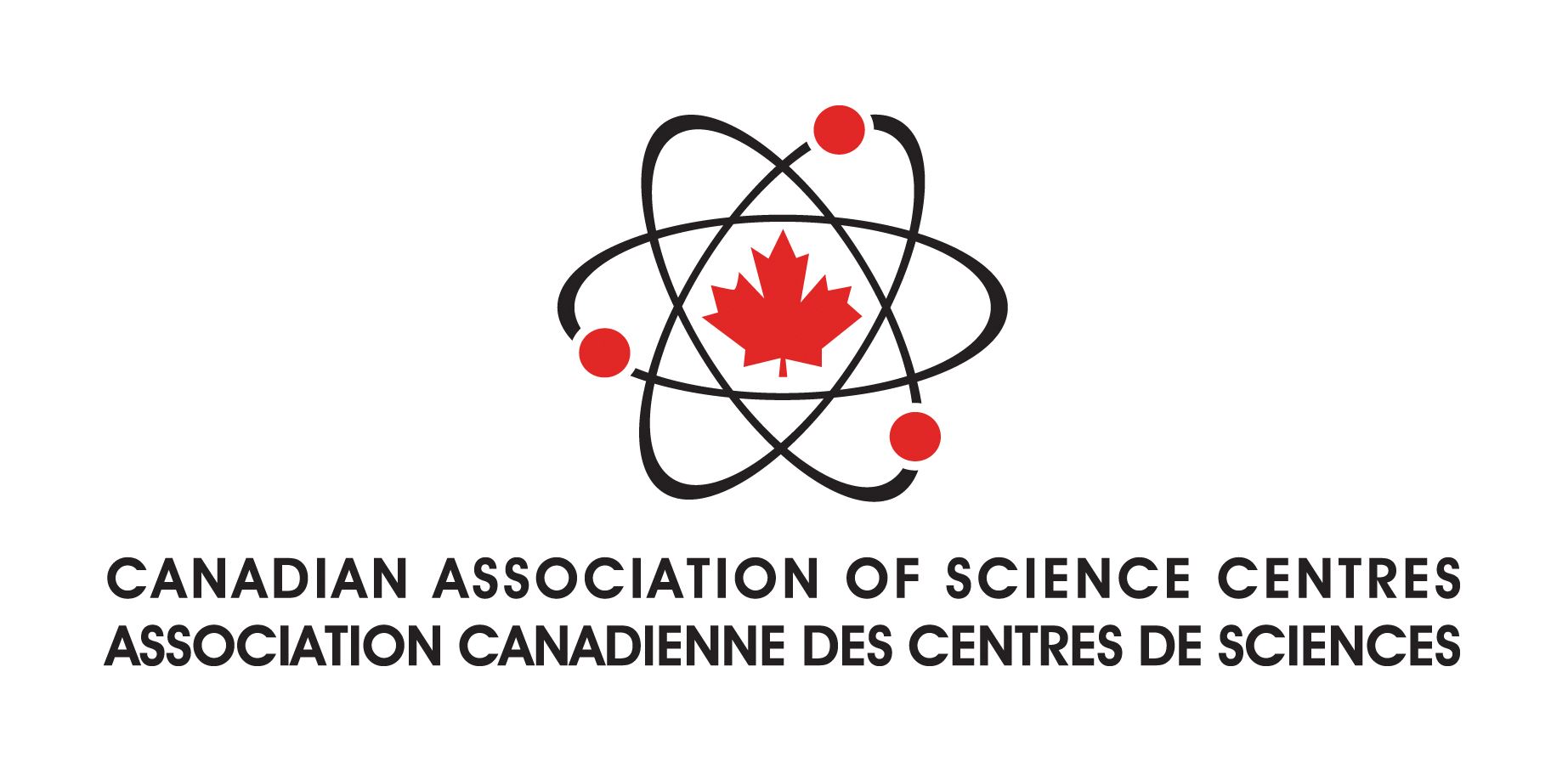
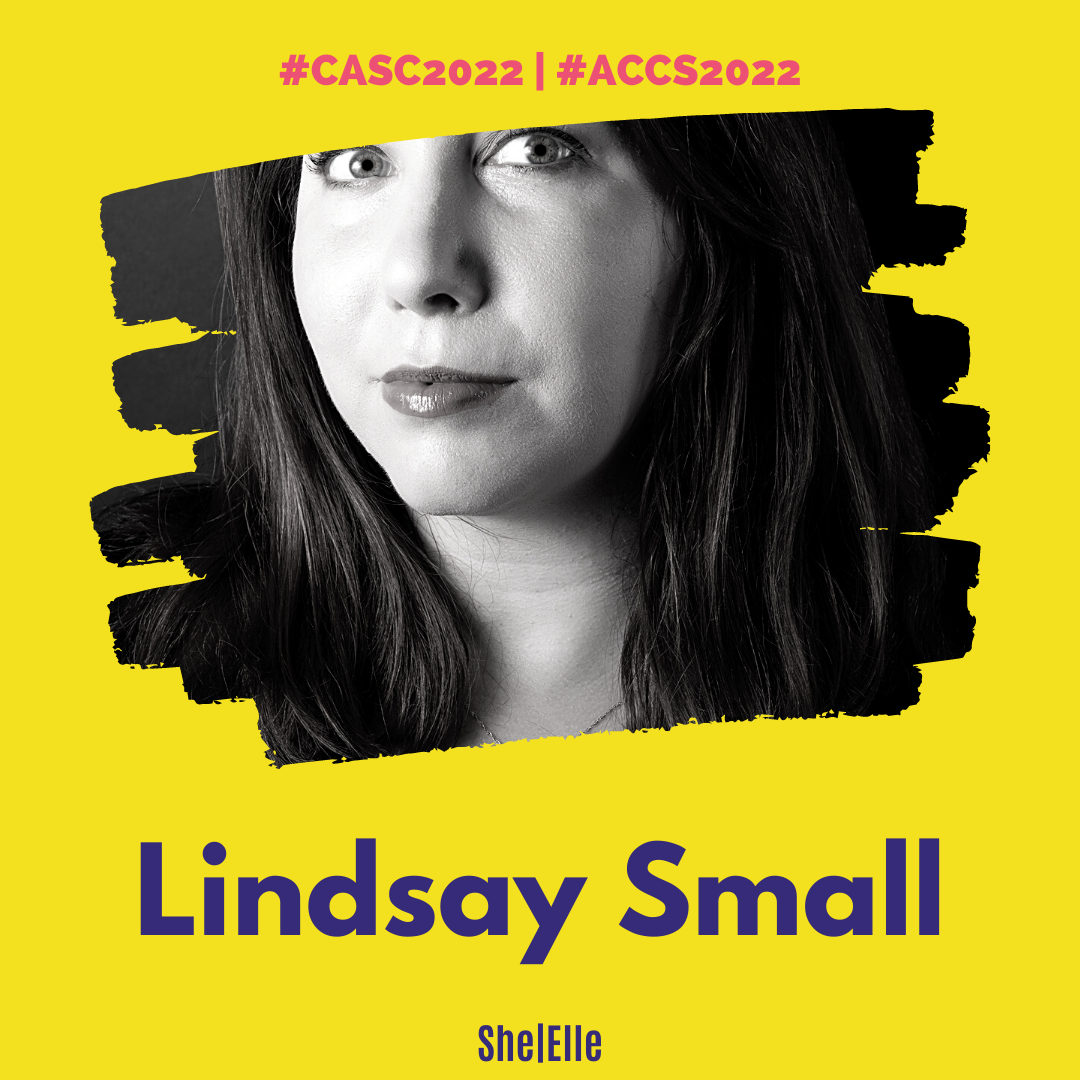


.png)
.png)
.png)





.png)
.png)
.png)






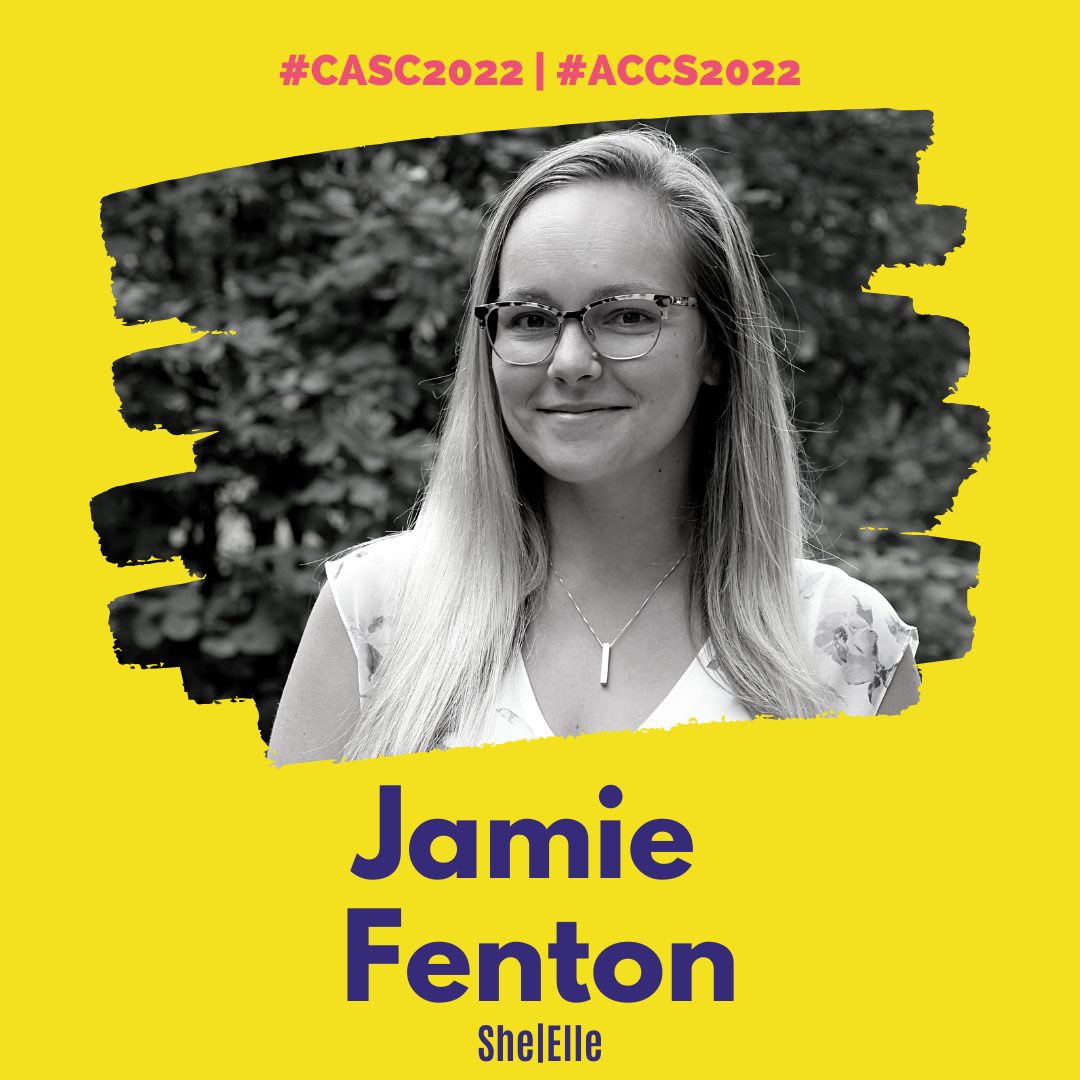



.png)


